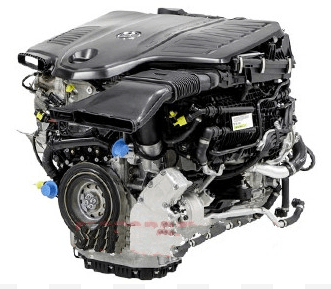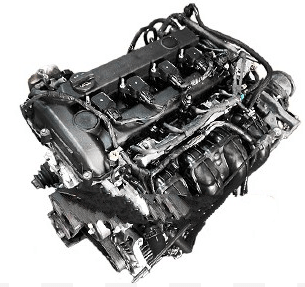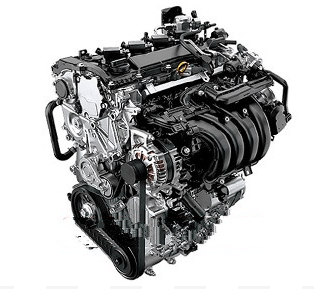Mercedes M256 3.0L Engine Specs, Problems, Reliability
Mercedes M256 3.0L Engine Specs, Problems, Reliability : Mercedes M256 3.0L Engine Specs
Mercedes M256 3.0L Engine Specs, Problems, Reliability. The Mercedes-Benz M256, the most recent 3.0-liter inline six-cylinder gasoline engine, is a member of Mercedes modular engine family that consists of four-cylinder M260/M264 engines and OM656/OM654 diesels. The M256 3.0 L engine was first of all presented in the 2017 S-Class W222 S450 and S500 designs. The Mercedes hasn't been producing inline-six engines for a very long time given that the last one - the M104, and now, this new 3.0-liter engine is slowly and efficiently changing the previous M276 V6 engine.
The M256 has a die-cast aluminum cylinder block. The cylinder walls are machined with a twin-wire-arc spraying technique (TWAS). This approach sprays a low-friction coating Nanoslide. Mercedes-Benz patented Nanoslide coating develops a microporous surface area of the cylinder walls and minimizes friction losses compared to conventional cast-iron cylinder liners. The cylinder-bore spacing is 90 mm - unified across the new household.
Here is main recommendation on Engine, Mercedes, issues, m256, mb 3.0 engine, mb 3.0 six cyl, mercedes 3.0 6 cyl, mercedes 3.0 inline six, Mercedes M256 3.0L Engine, Mercedes M256 3.0L Engine problems, Mercedes M256 3.0L Engine reliability, Mercedes M256 3.0L Engine specs, oil, power, problem, problems, reliability, specs. We have the world class source for Engine, Mercedes, issues, m256, mb 3.0 engine, mb 3.0 six cyl, mercedes 3.0 6 cyl, mercedes 3.0 inline six, Mercedes M256 3.0L Engine, Mercedes M256 3.0L Engine problems, Mercedes M256 3.0L Engine reliability, Mercedes M256 3.0L Engine specs, oil, power, problem, problems, reliability, specs. Check it out for yourself! You can gather Mercedes M256 3.0L Engine Specs guide and see the latest Mercedes M256 3.0L Engine Specs, Problems, Reliability.
| Title | Mercedes M256 3.0L Engine Specs |
|---|---|
| Format | PNG |
| Width | 331px |
| Height | 289px |
| URL | https://uscarsnew.com/wp-content/uploads/Mercedes-M256-3.0L-Engine-Specs.png |
| Published Date | October 21, 2021 |
| Latest Updated Date | October 21, 2021 |
| Uploaded By | Karen R. Russell |
Back To Mercedes M256 3.0L Engine Specs, Problems, Reliability




